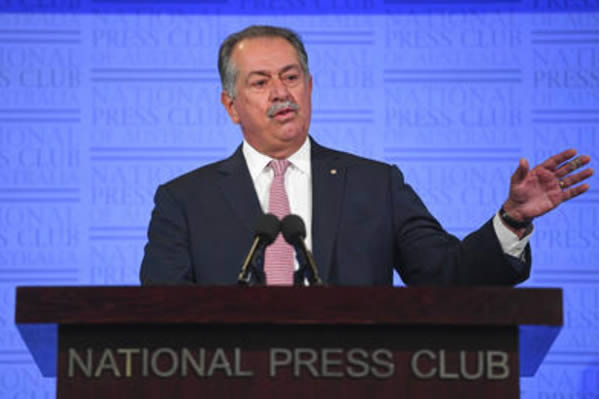If you set aside the management cliches, Liveris’s recent address to the National Press Club in which he alluded to three important global trends – anti-globalization, digitalisation, and sustainability – and the need to revitalise manufacturing in this country, was indeed an interesting, polished speech. Not perhaps revelatory in substance but all good stuff. But the conspicuous failure was his endorsement of Morrison’s “gas-led economic recovery” announcement made the last few days. There is an obvious and serious disconnect between pursuing a sustainable future and ploughing public funds into fossil fuels such as gas and then spinning it to the public as a fiscal recovery package.
However, the thrust of my earlier post involved three issues –
1. There is no compelling economic case for a gas-led recovery plan
2. Government obsession with secrecy and ‘announcements’ shrouded in ideological ‘spin’
3. Establishing another economic hub catering for rent-seekers
These are all significant issues which should be front and centre in any democracy – certainly a far cry from any left-wing ploy!
Let us further examine the first and key issue – the economics of a gas-led economic recovery.
Government funding in an economic crisis is usually divided between ‘rescue’ spending and ‘recovery’ spending. In our case, ‘rescue’ spending refers to actions associated with Jobkeeper/Jobseeker/ healthcare etc. Apart from its problematic strategy to wind back Jobkeeper, the government has done reasonably well in the ‘rescue’ phase with one important exception. The important exception being the ideological discriminatory application of Jobkeeper eg the exclusion of universities, the gig economy, the arts etc from the Jobkeeper benefits
However, ‘recovery’ or ‘stimulus’ spending requires a different set of decisions, typically a binary choice. Do we spend on old dirty industries who will most likely leave us with stranded assets, or do we go with more contemporary policies which can deliver a better result for both the economy and the environment. It is instructive that a new study to be published in the Oxford Review of Economic Policy, assessing global stimulus efforts, says that of the 20 countries included in the study, Australia was the only country backing fossil fuels.
This is not to say that gas industry expansion, despite its lack of efficacy, is an inherently bad short-term policy initiative – there may be a transitory role but not if its viability requires government intervention in the energy market and being left with stranded assets. And it is certainly not the role of government to be subsidising gas projects at the behest of lobbyists and rent seekers.
It is even more damming of the Government’s gas plan that there are many more stimulus possibilities that would create far more jobs and environmentally friendly investment returns than fossil fuel investment. For example, the Grattan Institute proposal or the excellent “Million Jobs Plan” developed by the think-tank Beyond Zero Emissions and modelled by economist Chris Murphy.
So , gird your loins (so to speak) for a repeat gas industry rip-off! First, a case of industry manipulated price arbitrage involving domestic and export LNG pricing. And now we are about to be shafted again. When will we ever learn……
I won’t waste time on the other two issues mentioned – they are really self-evident to anybody who bothers to look!
The views and opinions expressed here are solely those of the author.

